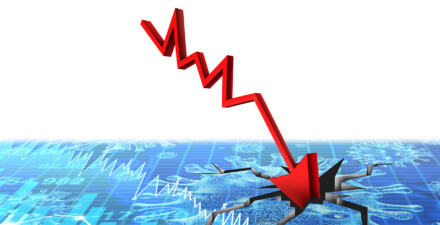The president must appoint a COVID-19 czar to ramp up production of medical supplies

COVID-19 presents the gravest threat in generations to the health and well-being of Americans. The largest of obstacle standing in the way of our defeating that threat is the capacity of our health care system—supplies, equipment, and personnel.
To address this, President Trump must appoint a COVID-19 czar to use federal powers to direct the production of needed medical supplies, including personal protective equipment, ventilators, test kits, hospital beds, and negative-pressure rooms, which help prevent cross-contamination.
As ICUs begin to feel the strain and one-quarter of our citizens shelter in place, America cannot afford one more day without this czar.
The federal government responded too slowly to the need to “flatten the curve” on the demand for medical care. That response has the potential to cost us dearly, both in human lives and economic turmoil. Appointing a COVID-19 czar to address the crisis is even more urgent and could save thousands of lives.
The federal government still has not responded with a coordinated increase the supply of medical equipment. Demand for that equipment will soon outstrip supply. According to data provider Knoema, in the 18 days from March 4 to March 22, the number of confirmed COVID-19 cases in the United States increased from 118 to 31,888 (a 270-fold increase), while the proportion of those tested has remained within a relatively narrow band of 12-14 percent. Some scientific studies show that approximately 5 percent of those with COVID-19 will need to enter intensive care at hospitals. With only 100,000 ICU beds nationwide, we will soon exceed the capacity of the health system.
Washington is expected to hit capacity on March 30, New York on April 5. By May 7, every state in the nation will hit a shortage of ICU beds. When that happens, most of those who need intensive care but cannot get it will die.
Right now, nearly all the effort lies in reducing demand for hospitalization by reducing the rate at which people are infected through social distancing. Though crucial, this effort occurs at a high economic cost—lost economic output and a massive spike in unemployment—potentially at the level of the Great Depression. The flipside of this great cost is that anything we can do to minimize it is very valuable.
Missing in the policy actions taken so far is an increase in the supply of hospital care. A military-style coordinated effort to provide needed health care and supply of medical equipment is necessary to complement social distancing.
As economists, we believe in the power of markets to solve many problems. But not this one. The epidemic is simply moving too quickly to allow market forces to adjust to the new reality. Instead of the market system, we must rely on centralized command and control from the government to solve the problem.
Who should the COVID-19 czar be? Most certainly not a political leader. The person who can best lead this effort needs technical expertise. A crisis is not the time to educate someone whose career has been devoted to honing political skills. Rather, the czar should be someone trained in medicine and business, who has experience managing the production of medical products.
What might the czar do? First, mitigate incentive problems and facilitate information flow by requiring businesses to allocate resources to the effort and ensuring they will be compensated. For example, some ventilator manufacturers have said they have excess capacity. They say they can’t boost production immediately because they would have to retool production lines, train assemblers and testers, and get parts. The COVID-19 czar could speed that effort by prioritizing access to trained workers and parts.
Second, the czar could prevent competition between states for limited resources by coordinating the delivery of needed supplies. States with dire need such as New York and Washington should be allocated supplies now, while other states would receive new production once it has been made.
The czar could serve as a clearinghouse of information. A factory can’t go from making Ford F-150 trucks one day to ventilators the next without someone getting them access to trained advisors and sharing product designs. Some states and regions are having conference calls with manufacturers and making efforts to collate what would be needed, but we to bolster this with a national coordinated effort.
A package of two or more interventions is stronger than a single intervention. In this case, that package includes the policy behind flattening the curve of infection and, just as important, accelerating the production of medical supplies. To achieve the latter, the President must appoint a COVID-19 czar to accelerate the production and distribution of medical supplies.
—Scott Shane is the A. Malachi Mixon III Professor of Entrepreneurial Studies; Susan Helper is the Frank Tracy Carlton Professor of Economics and former Chief Economist at the U.S. Department of Commerce; and David Clingingsmith is Associate Professor of Economics—all at the Weatherhead School of Management at Case Western Reserve University.







